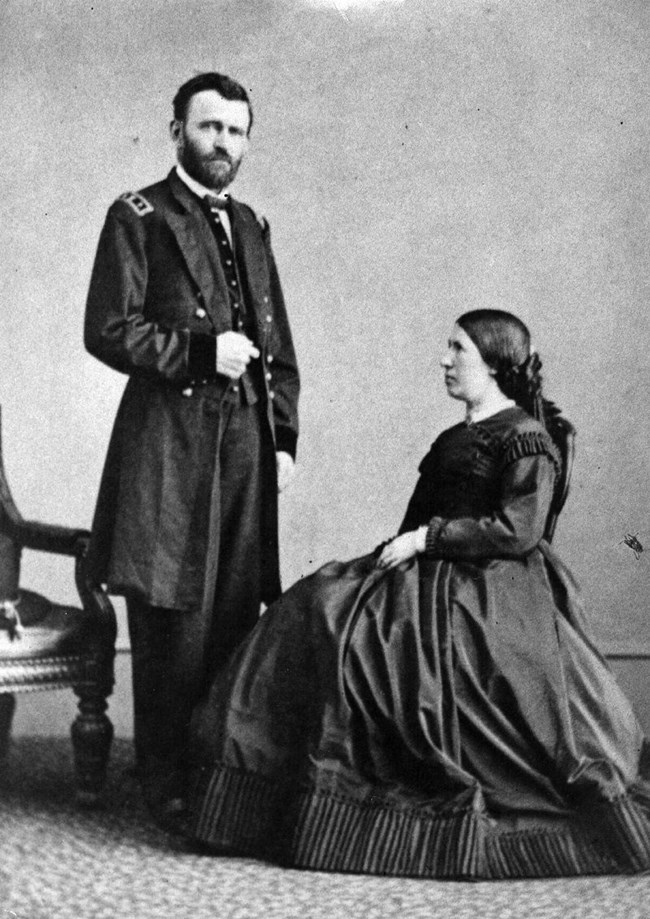|
Second Lieutenant Ulysses S. Grant was assigned for duty in St. Louis at Jefferson Barracks following his graduation from West Point in 1843. Soon after arriving he was invited by his friend and former West Point roommate, Frederick T. Dent, to visit his family’s plantation on the Gravois Creek, roughly five miles north of Jefferson Barracks. Grant enjoyed the family atmosphere and became a weekly visitor to White Haven. Fred’s sister Julia had initially been away at boarding school in downtown St. Louis and was staying with the prominent O’Fallon family. When she returned to White Haven in early 1844, Ulysses and Julia met for the first time. According to Julia, “after that first visit [Ulysses] became a daily visitor.”
The two soon began a courtship. They rode their horses around the property, attended parties at Jefferson Barracks, and grew closer in their affection for each other. When Ulysses got orders to move with the 4th U.S. Infantry to Louisiana, he proposed to Julia on the front porch of White Haven. Four years later they would be married at the Dent family’s St. Louis city home on the corner of 4th and Cerre streets.
Over the next few years Ulysses and Julia would experience painful separations due to Grant’s Army obligations. In 1852 Grant was sent to the Pacific Northwest while Julia and their two young sons lived at White Haven with her parents. Struggling to endure life without his family, Ulysses resigned from the Army two years later and decided to start anew as a farmer at White Haven. He worked to grow fruits and vegetables on acreage gifted to the couple from Julia’s father, Colonel Frederick F. Dent, when they got married. From 1854 to 1859 the Grant family lived at White Haven and struggled to support their family on a meager income. In early 1860 the family moved to Galena, Illinois.
After the Civil War, Ulysses and Julia began purchasing the White Haven property from the Dent family. The Grants hired a caretaker in 1866 to run the farm and Ulysses expressed his intentions to make White Haven a profitable horse-breeding operation. There was also loose talk of the Grants retiring to White Haven after Ulysses concluded his presidency. By 1875, however, it became clear that the farm was not profitable. Grant decided to lease his property to other farmers in the St. Louis area. These changing circumstances led Ulysses and Julia to eventually retire to New York City, and they never permanently lived at White Haven after the Civil War. Grant retained ownership of the property until a few months before his death in 1885, however, and it always remained a place of special significance to the Grants. Altogether the White Haven property was a focal point in Ulysses’ and Julia’s lives for many decades.
|

